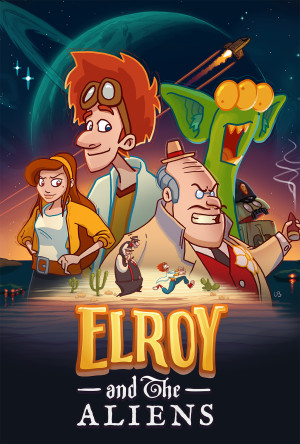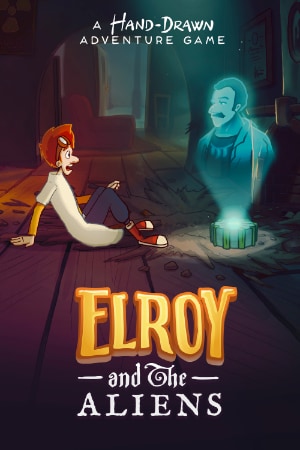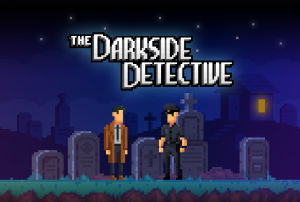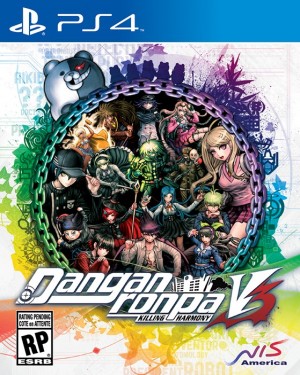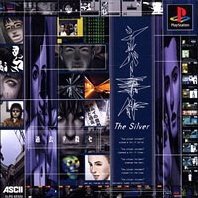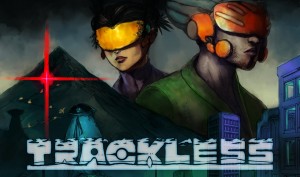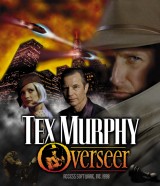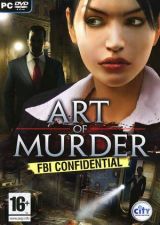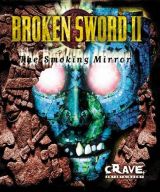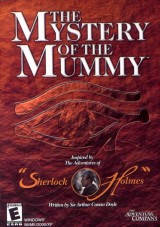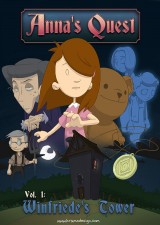Review for I fell from Grace page 2
The blues, the blood, the grime of a city in rhyme: these are the things that most stand out when diving deep into I fell from Grace. This indie adventure from Swedish developer Deep Taiga tells a very personal tale of human tragedy and perseverance, confronting players with the ethical dilemma of just how far they’d go to save a loved one when weighed against the cost of their own humanity. And yet it goes beyond one troubled protagonist, gradually peeling back layer upon layer of other stories within its deteriorating modern urban environment. The game’s branching narrative offers great replayability to flesh out the many sub-plots and interesting personalities, and your choices will greatly affect the path you take through each experience, ultimately culminating in one of several different endings – not all of them of them “happily ever after” by any means. And did I mention the poetry?
The story begins with Henry’s struggle to find a cure for his dying wife, Grace. The couple lives in a big house in the better part of town, but they have trouble paying the bills. Henry’s performance at the prestigious Lieberman research lab doesn’t seem to be good enough for a promotion, while most of his colleagues from the old block have already moved to the pristine new offices. One evening, a mysterious old lady warns him of something ominous in riddles, something about saving his wife. The next morning, Henry receives a package of ‘mysterious pills’ in his mailbox, along with a letter written in an unintelligible script. Is this pill the solution to his wife’s incurable disease, or is it something else entirely? This event changes the course of everything for both Henry and Grace, and from here on, hard decisions will need to be made. Gradually, Henry is pushed further and further, occasionally tempted to pursue extreme measures as he tries to get circumstances to work on his favor. I’m talking about killing, smuggling, stealing – really anything that could put him behind bars.
My first few minutes of play were mostly spent sightseeing, strolling the rainy downtown area, rummaging through Henry’s office and talking to every available character I met on the way, trying to map the neighborhood while searching for clues, if any. I wasn’t always sure of what to do in the beginning, but the pixel art environments and the soft, broody jazz music in the background lured me deeper and deeper into the lives of this city’s inhabitants. Before I knew it, I was fully buried in the mess Henry had made – and that was only the tip of the iceberg. The deeper I dug, the more questions I had about the many mysteries I encountered.
One of the things that really surprised me was how big the world is in this side-scrolling adventure. Apart from the main branching narrative, the crumbling city turns out to weave a complex tale of its own. We see shops that never make any sales, an empty library, and drug dealers and drunks crowding the street corners, while uptown is the mega-medical facility where Henry works, towering over these bleak streets. The bitter social contrast is one of the themes repeatedly brought out throughout this journey, especially when Henry is faced with choices that may or may not change his life forever. Trust me: helping Henry pick the best decision and keep him on the right track is not easy.
There are various places to go and things to do in a day for Henry, spanning three main locations: his home, his office, and downtown. He uses his car to travel between them, and while waiting to arrive, a loading screen displays the controls, both for keyboard and gamepad. Since I used the keyboard, I walked around using the arrow keys (and eventually ran everywhere while pressing shift after realizing I could) and checked on my inventory using tab. Whenever you move through a scene, labels for any interactive objects pop up, so you can stop to see what you can do with them by using the E key. Henry will say what he thinks of the object, and if it’s up for grabs, a pair of options will be provided: Take Item or Leave Item. Every item is different: some may affect the narrative (like the creepy skull at the cult shop), some are needed to progress, and some seem to be useless (though, since I haven’t unlocked all the achievements and endings, even these may ultimately be meant for something).
Communicating with other characters gets a little bit more complicated, as Henry will be challenged spontaneously to reply either nicely or rudely. There’s a visible time bar quickly ticking down, so you’re required to think fast and make a decision. The options are left a little vague, like “Be tough” or “Try to plea,” so you can’t quite guess what Henry will actually say and thus be sure of how the person will respond. The ambiguous nature of certain options can lead to unintended consequences. On my first playthrough, I chose something that seemed natural for Henry to do, and he ended up killing a stranger with an iron pipe in a shady alley. It was my first try, so I just moved on and watched out for future bad decisions. However, if you really regret a choice, you can load a previous save and rewrite Henry’s fate, though there’s only one slot available. It would be easier to find the best route possible by recording your progress at several points to load at crucial times, but in this game you have to make do with just the one slot, which makes every single decision more important.
The most distinctive aspect of I fell from Grace is that everyone communicates in rhymes, although without any voice acting. What was really exciting for me is the fact that even while rhyming, each and every character still has their own distinctive way of speaking. The green-haired punk downtown sounds dangerous, Mrs. Jones the flirty neighbour is… well, flirty, and even Grace who is bed-ridden most of the time has her own voice that fluctuates between optimistic and defeated as the story moves forward. It’s interesting how the rhymes and the limitations on words actually tell us tales with richer meaning – and more often than not, are funnier. There’s one part where a character speaks ‘normally’ and Henry comments – in rhyme, of course – how the person has a funny way of talking. Not only do these kinds of conversations nicely flesh out personalities, the poetry is important because it’s a guide and often offers hints on how to proceed.
At times I would go round and round without finding any clues about how to locate a certain object or trigger the next event, but when that happened I usually discovered something new in the environment that I had previously overlooked. The somewhat blocky pixel graphics actually depict many lovely details that will only be noticed if you’re curious enough to explore thoroughly. A park bench, graffiti on the wall, even the decorative street light can all be interacted with and may provide some intimate insight into the city. One of the bitter ones that stuck with me is Henry’s remark when peeking into a trash can on the street:
‘The stuff I can see in this trashcan will make anyone depressed.
A filled in college application and a positive pregnancy test.’
This kind of background colour adds extra layers to the overall narrative, even when they serve no purpose for puzzle-solving whatsoever. It also feels as if the whole city coexists together with Henry. There are thoughtful animations like people and cars passing by and dogs running around, but I’m talking about the characters themselves and how they all have their own interests that you are able to probe whenever you stop to chat with one. Like the drunks at the bar, whose tales could be about their unfortunate past, or about events occurring around the block. Over at the video rental shop, a young kid works the counter instead of staying at school because her mom isn’t capable of running the business. Every day, according to your choices, new sets of conversation may appear, allowing you to get to know more about these people. Sometimes it is up to us to help them when the chance arises.
The only opportunity to have this experience with Henry is when he visits his psychiatrist. During these appointments, you don’t ask about the doctor, but rather give answers instead. This is a crucial time for learning more about who the protagonist is as a person, and an opportunity to sort of ‘discuss’ our weird encounters or experiences day after day.
Even though Henry can roam around freely, there are objectives to complete to move the story along. For example, when Henry is late for a meeting there’s an option to go downtown but no matter how many times I tried escaping with the car, Henry said, ‘Now is not the time for shopping. I have to keep my career from flopping.’ That told me Henry still had some business to conduct back at the office first. Other times I had to figure out a solution to a problem before I could do anything else, such as how to pass through an electrified puddle when there’s nothing you can use to cross it, or how to win over someone’s heart to acquire an item I wanted. I occasionally did a lot of running around, getting creative, trying to use the objects in my inventory within the various scenes. Most of the time, however, I was surprised at how simple the solution actually was if I paid more attention to the rhymes.
After a personal-record-breaking 18 hours of play time (with eating and living in between), I’ve played through the game twice and both times ended… badly. The first time through, I committed various crimes of a serious nature, and naturally was forced to face the consequences. At that point the game seamlessly reset for a new playthrough, and this is where things got interesting. Though the core story remained the same, I tried my best to live differently, testing out alternate options and whenever possible staying away of criminal acts. Unfortunately, even then I got the same ‘bad’ ending, but in the process I began to recognize hidden messages in the rhymes that I couldn’t have noticed my first time through. I’m usually not big on replaying games, but in I fell from Grace, a second playthrough is part of the journey as it enriches the entire narrative.
When I first saw the trailer for this game, what caught my attention were the retro graphics and the cool noir jazz score – not to mention the seemingly endless rain and the muted colour palette, which really add to the dreary atmosphere. However, it didn’t take long when actually playing the game before I began to see that the experience is so much more than that. I fell from Grace is an up-close look into what makes humankind so vulnerable, as reflected by the characters involved and their daily struggles. It is an examination of love, and how truly frail the barrier is between dreams and reality. It is a humble yet realistic portrait of life when happiness and joy is taken away.
Fortunately, the game doesn’t take away any happiness or joy from its players. I snickered from time to time at the jokes and witty one-liners, and was often amazed by the clever wordplay. I enjoyed my time spent with the unique people in the ratty apartment block and listening to scientists argue in the old office corridor, and I was continuously interested in learning more about the lives of the shop owners downtown every day. These routines made me care even more about the city, and it certainly inspired me to make sure Henry and Grace found contentment if at all possible. Beneath all the personal details and rhyming dialogue, in the end this game is about far more than just finding a cure for an ill spouse. At heart it is exactly what its title suggests: the experience of falling from grace, and what it truly takes to become humane.
I fell from Grace is really not a difficult game to complete, but there are so many elements to take in that you’ll need to invest a fairly generous amount of time to find what you need and get to the very end. In peeling off layer after layer to get to the very core, nothing is ever fed to you along on the way, which makes it such an intriguing experience. After having played it twice already, do I want to dive once again into this city to find that elusive happy ending? The answer is yes I do, and for fans of story-driven adventures, I suspect you will too.



